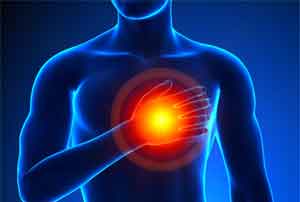- Home
- Editorial
- News
- Practice Guidelines
- Anesthesiology Guidelines
- Cancer Guidelines
- Cardiac Sciences Guidelines
- Critical Care Guidelines
- Dentistry Guidelines
- Dermatology Guidelines
- Diabetes and Endo Guidelines
- Diagnostics Guidelines
- ENT Guidelines
- Featured Practice Guidelines
- Gastroenterology Guidelines
- Geriatrics Guidelines
- Medicine Guidelines
- Nephrology Guidelines
- Neurosciences Guidelines
- Obs and Gynae Guidelines
- Ophthalmology Guidelines
- Orthopaedics Guidelines
- Paediatrics Guidelines
- Psychiatry Guidelines
- Pulmonology Guidelines
- Radiology Guidelines
- Surgery Guidelines
- Urology Guidelines
Marriage provides protection against heart disease,stroke

According to a new study, Marriage may protect against the development of heart disease/stroke as well as associated mortality. The analysis further suggests that single, divorced, and widowed are at heightened risk of the diseases. The findings of the study have been published online in the journal Heart.
In a previous study published in Journal of American Heart Association last year, it was found that compared to married heart disease patients, being unmarried was associated with a higher risk of dying. This was the first study to show an association between marital status and death from any cause and heart disease-related death in a high-risk heart patient population.
The authors carried out the study from research databases to clarify the issue as the findings of previous research on the impact of marital status have been somewhat mixed.
Most (80%) cardiovascular disease can be attributed to well-known risk factors: age; sex; high blood pressure; high cholesterol; smoking; and diabetes. But it’s not clear what influences the remaining 20 percent. The findings prompt the researchers to suggest that marital status should be included as a risk factor for heart disease/stroke and likely survival in its own right.
In the largest study to date, the researchers drew on 34 out of a total of 225 studies, all of which had been published between 1963 and 2015, and involved more than 2 million people aged between 42 and 77 from Europe, Scandinavia, North America, the Middle East, and Asia.
Pooled analysis of the data revealed that compared with people who were married, those who weren’t (never married, divorced, widowed) were at heightened risk of developing cardiovascular disease (42%) and coronary artery heart disease (16%). Not being married was also associated with a heightened risk of dying from both coronary heart disease (42%) and stroke (55%).
When the data were broken down further, the analysis showed that divorce was associated with a 35 percent higher risk of developing heart disease for both men and women, while widowers of both sexes were 16 percent more likely to have a stroke.
Although there was no difference in the risk of death following a stroke between the married and the unmarried, this was not the case after a heart attack, the risk of which was significantly higher (42%) among those who had never married.
The authors caution that the methods used and adjustments made for potentially influential factors varied considerably across all the studies, which may have affected the results of their analysis.
“Future research should focus around whether marital status is a surrogate marker for other adverse health behavior or cardiovascular risk profiles that underlies our reported findings or whether marital status should be considered as a risk factor by itself,” the authors conclude.
According to experts, there are various theories as to why marriage may be protective. These include earlier recognition of, and response to, health problems; better adherence to medication; better financial security; enhanced well-being; and better friendship networks.
For more details click on the link:

Disclaimer: This site is primarily intended for healthcare professionals. Any content/information on this website does not replace the advice of medical and/or health professionals and should not be construed as medical/diagnostic advice/endorsement or prescription. Use of this site is subject to our terms of use, privacy policy, advertisement policy. © 2020 Minerva Medical Treatment Pvt Ltd